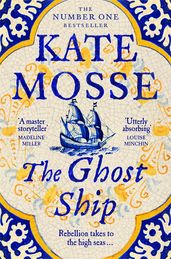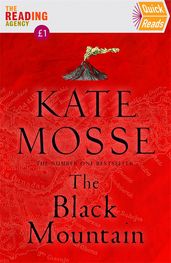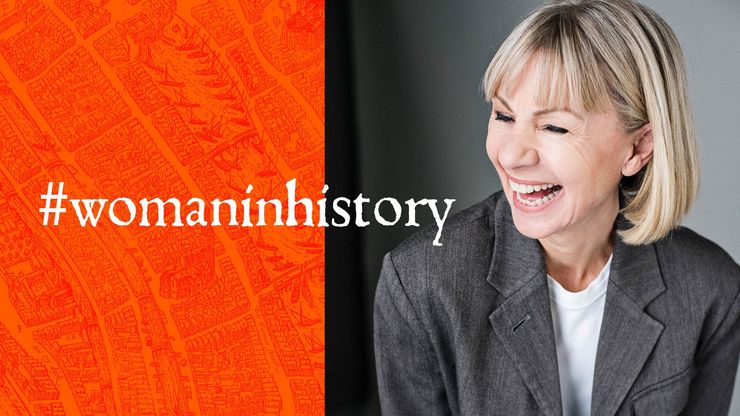Kate Mosse’s books in order
Kate Mosse is beloved for her epic historical fiction books, including The Joubert Family Chronicles and Languedoc series.

Kate Mosse is the award-winning author of novels, short story collections, essays, non-fiction, and a much-loved playwright. Her books include the multimillion-selling Languedoc trilogy which begins with the unmissable Labyrinth, and the bestselling more recent series, The Joubert Family Chronicles. Here we share all of her books in order.
What is Kate Mosse's latest book?
Feminist History for Every Day of the Year is the latest book by Kate Mosse.
Feminist History for Every Day of the Year
by Kate Mosse
Discover a rich tapestry of women's and girls' history from across the globe and through the ages. This brilliant book offers a piece of history for every day, celebrating 366 incredible women and moments from history, from well-known figures like Ruth Bader Ginsburg, Mary Anning and Simone Biles to unsung heroes and forgotten stories. A treasure trove of empowering accounts, it is the perfect book to dip into for inspiration and to appreciate the vital role women have played throughout history.
Kate Mosse’s Joubert Family Chronicles books in order
The Burning Chambers
by Kate Mosse
Book one in The Joubert Family Chronicles series
Beginning in Carcassonne in 1562, The Burning Chambers is a thrilling adventure and a heartbreaking love story set against the backdrop of the religious wars in France. When nineteen-year-old Minou Joubert receives an anonymous letter reading only SHE KNOWS THAT YOU LIVE, she realises she must decipher this mysterious message. But before she has a chance she meets Piet Reydon, a young Huguenot convert with a dangerous mission of his own, and her world is changed forever . . .
The City of Tears
by Kate Mosse
Book two in The Joubert Family Chronicles series
The gripping sequel to The Burning Chambers is set in France in 1572, where the Wars of Religion have been raging for ten violent years. The country has been torn apart over matters of religion, citizenship and sovereignty, but a royal wedding may mean peace at last. When Minou Joubert receives an invitation to this historic wedding, she has no idea that in the days following the marriage her own family will be ripped apart and one of her children will disappear without trace.
The Ghost Ship
by Kate Mosse
Book three in The Joubert Family Chronicles series
The Barbary Coast, 1621. A mysterious vessel floats silently on the water. It is known only as the Ghost Ship. For months, its captain - Louise Reydon-Joubert - and her courageous crew has hunted pirates to liberate those enslaved during the course of their merciless raids. But now the Ghost Ship is under attack – its hull splintered, its sails tattered and burnt, and the crew at risk of capture. But the bravest among them are not who they seem.
The Map of Bones
by Kate Mosse
Book four in The Joubert Family Chronicles series
Olifantshoek, Southern Africa, 1688: The Cape's violent south-east wind carries whispers of the unquiet dead through a deserted valley. Suzanne Joubert, escaping war-torn France, seeks the truth of her cousin, the she-captain and pirate Louise Reydon-Joubert, who vanished at the Cape over six decades ago. Centuries later in Franschhoek, journalist Isabelle Lepard, another Joubert, searches for her ancestors in Olifantshoek. She's determined to restore the women of her lineage to history. But she quickly discovers that the tragedies and crimes of the past are far from over. Isabelle faces a race against time if she is not only going to discover the truth but escape with her life.
What is Kate Mosse’s Joubert Family Chronicles series about?
In Kate Mosse's Joubert Family Chronicles series, she takes readers on a thrilling journey from 16th-century France to Paris, Amsterdam, London and beyond, in a gripping story of love, betrayal and divided loyalties.
We begin with Sunday Times bestselling historical fiction novel The Burning Chambers, set in France in 1562. The adventure continues in the second book in the series, The City of Tears, set in Paris, Chartres and Amsterdam in 1572, before Mosse takes us to seventeenth-century North Africa in her most recent novel, The Ghost Ship. Here, Kate gives readers a taste of what’s in store throughout the series.
‘This is historical fiction to devour. Nobody does it like Kate Mosse’
— Anthony Horowitz on The Joubert Family Chronicles
Kate Mosse's Languedoc trilogy books in order
Labyrinth
by Kate Mosse
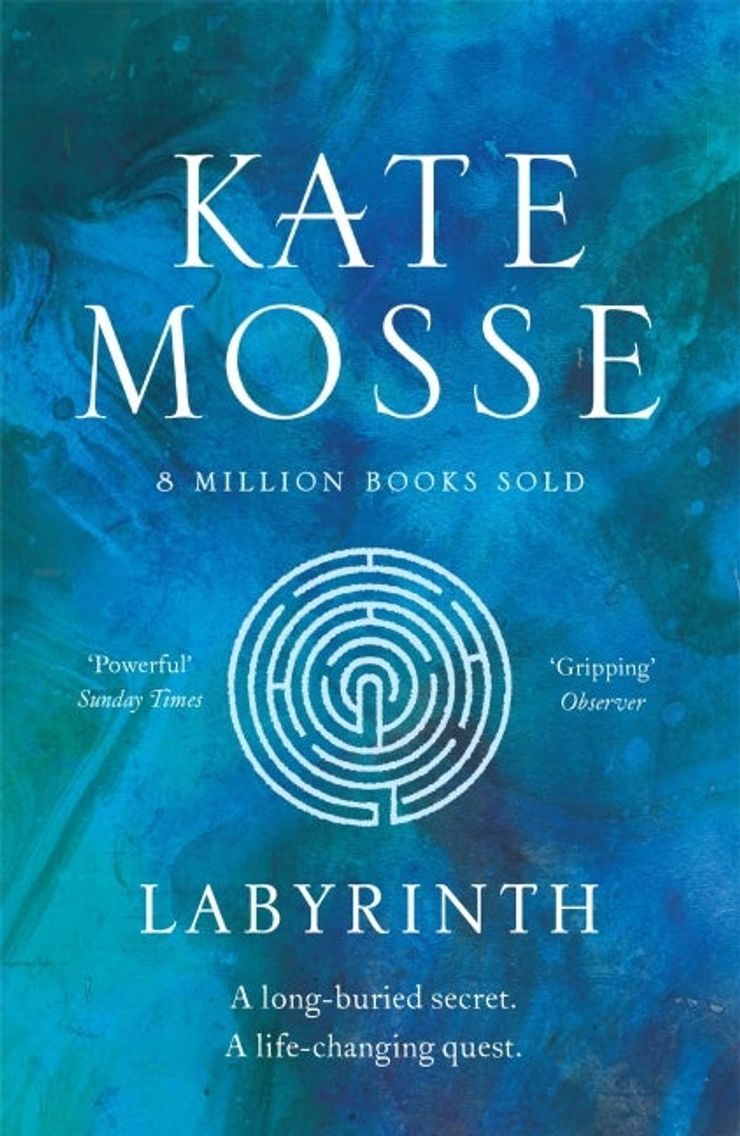
Book one in the Languedoc trilogy
Labyrinth tells the story of Alais and Alice – the first a young woman in thirteenth-century Carcassone who is given a strange book by her father which purports to hold the mystery of the true Grail, the second who discovers two skeletons in a cave in the French Pyrenees in 2005. Seeing a labyrinth symbol carved in the cave wall, Alice realises she has uncovered an unsettling secret: a link to the remote and dangerous past.
Sepulchre
by Kate Mosse
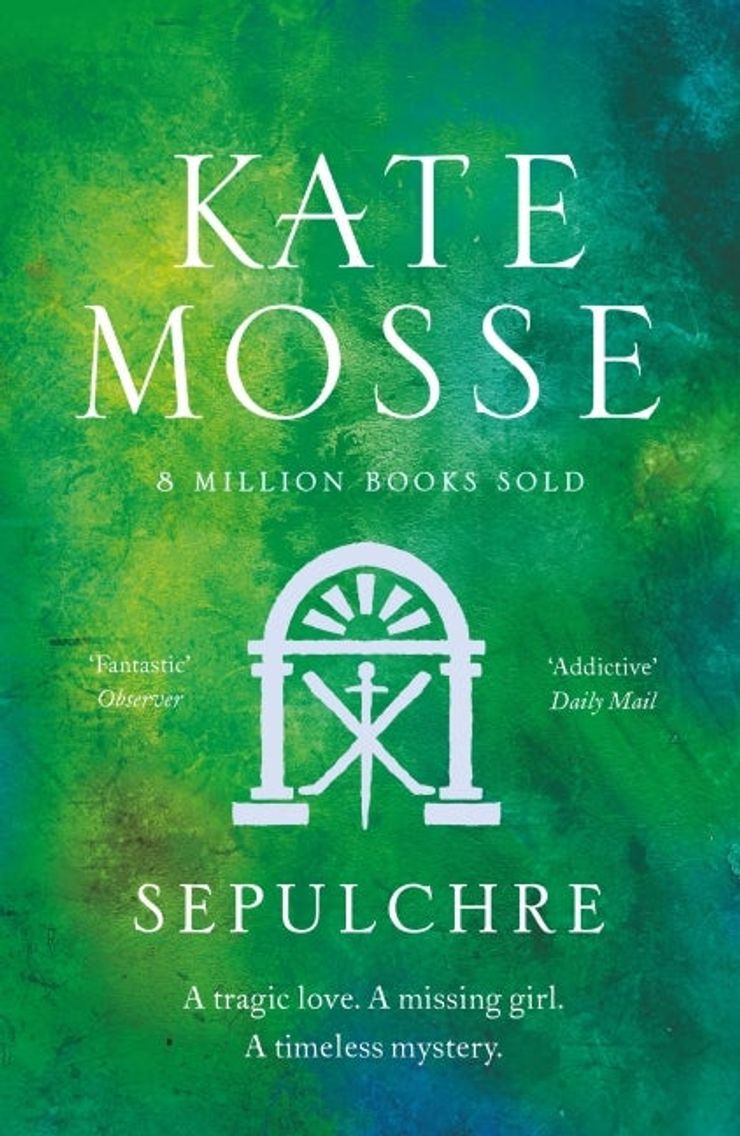
Book two in the Languedoc trilogy
In 1891, seventeen-year-old Leonie Vernier, having fled Paris for the sanctuary of her aunt's house near Carcassonne, soon stumbles across a ruined sepulchre and a mystery whose traces are written in blood.
In 2007, Meredith Martin arrives in Carcassonne to research a biography. But during the search for the key to her own complex legacy, she becomes immersed in the story of a tragic love, a missing girl, a unique deck of tarot cards and the strange events of one cataclysmic night a century ago . . .
Citadel
by Kate Mosse
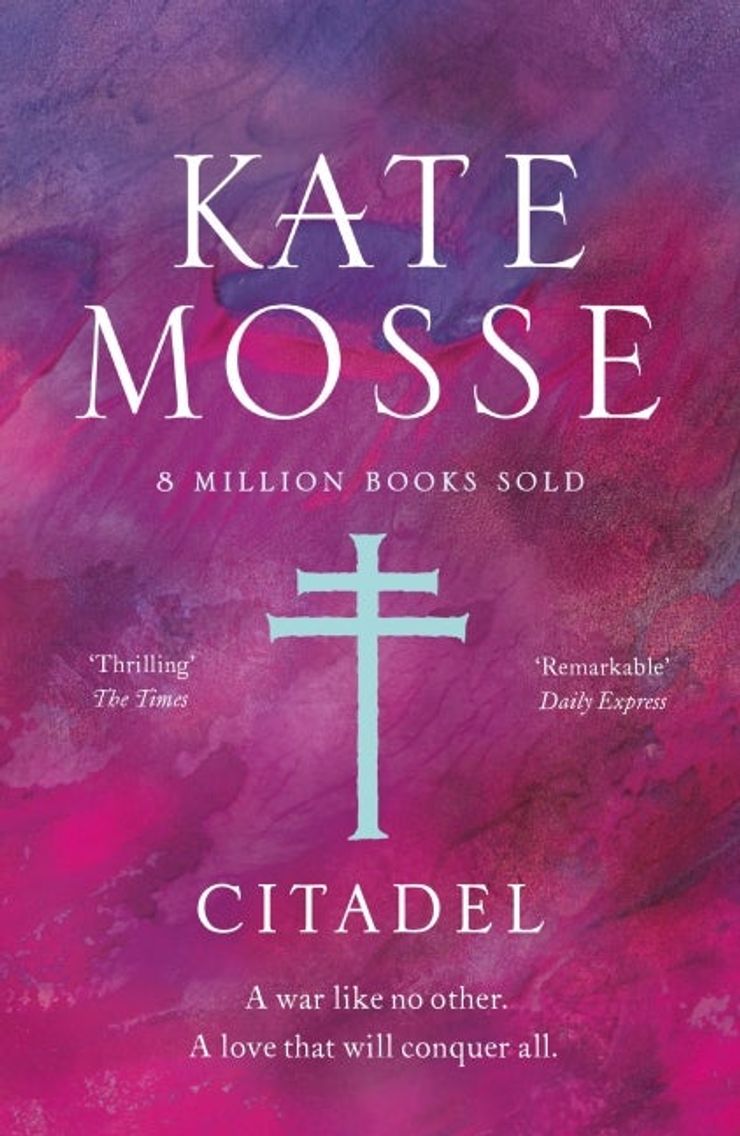
Book three in the Languedoc trilogy
It's 1942, and in Nazi-occupied France, Sandrine – a brave and vivacious nineteen-year-old – is drawn into 'Citadel', a Resistance group in Carcassonne comprised of ordinary women who are prepared to risk everything to fight for what is right.
This unmissable war novel is a story of courage and passion that asks, when the enemy lurks in every shadow, when neighbour turns on neighbour and friends disappear without a trace . . . is love enough?
Standalone books by Kate Mosse
Warrior Queens & Quiet Revolutionaries
by Kate Mosse
Warrior Queens & Quiet Revolutionaries is a celebration of unheard and under-heard women’s history. Meet nearly 1000 women whose names deserve to be better known: from the Mothers of Invention and the trailblazing women at the Bar; warrior queens and pirate commanders; the women who dedicated their lives to the natural world or to medicine; those women of courage who resisted and fought for what they believed; to the unsung heroes of stage, screen and stadium. Joyous, celebratory and engaging, Kate Mosse's book is for everyone who has ever wondered how history is made.
The Black Mountain: Quick Reads 2022
by Kate Mosse
May, 1706. Ana, a young Spanish woman, lives in a small town on the north-west coast of Tenerife which lies in the shadow of a mighty volcano. Legend says the volcano is home to the Devil himself, but for thousands of years it has stood quietly idle, posing no threat.
That is until one day, when Ana notices that the air feels strange and heavy. The birds have stopped singing. As she tends the family vineyard, a sudden strange tremor in the earth frightens her. Very soon it will be a race against time for Ana to help persuade the town that they are in danger and should flee before the volcano erupts and destroys their world. Will they listen? And Ana herself faces another danger . . .
The Taxidermist’s Daughter
by Kate Mosse
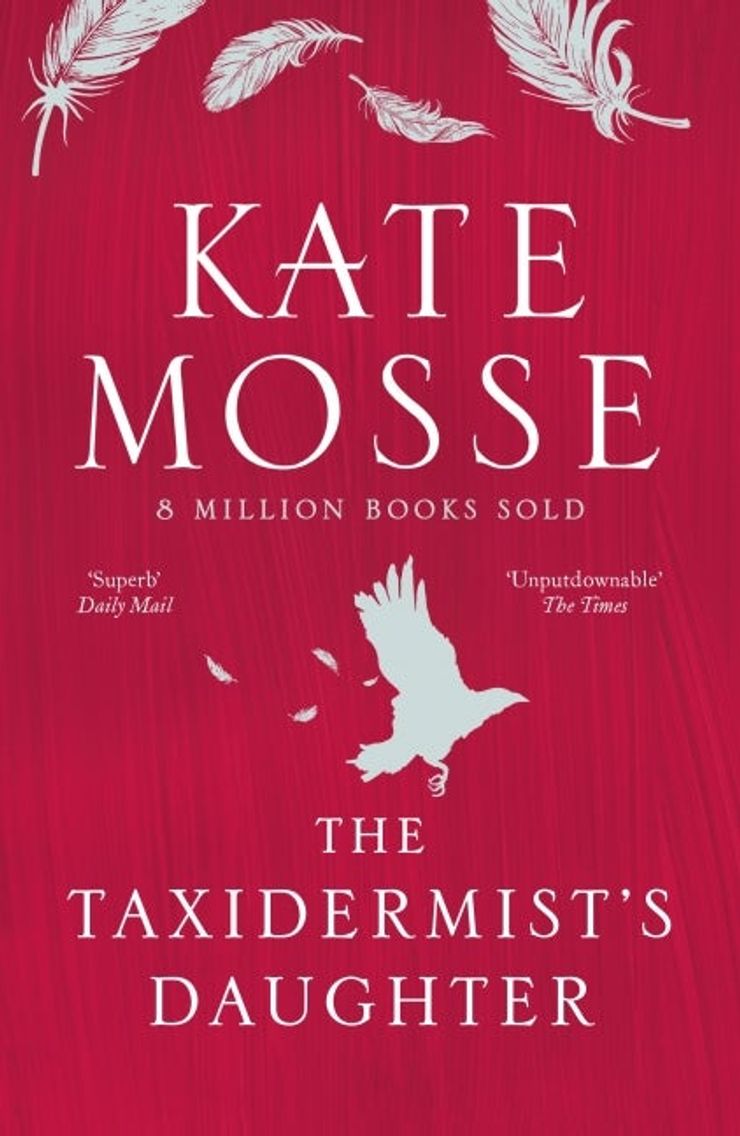
In 1912 in a Sussex churchyard, villagers gather on the evening when the spirits of those who will die in the coming year will be seen. Staying aloof is Constantia, the 17-year-old taxidermist's daughter, who lives amongst the remnants of her father's stuffed creations. The bell rings out, and nobody sees a gloved hand reach for a flint. When the bell's notes fade, a woman is found dead. As the village prepares for the highest tide of the season, Connie comes under suspicion. Is she an innocent victim? Or are there stranger and more sinister forces at work?
The Winter Ghosts
by Kate Mosse
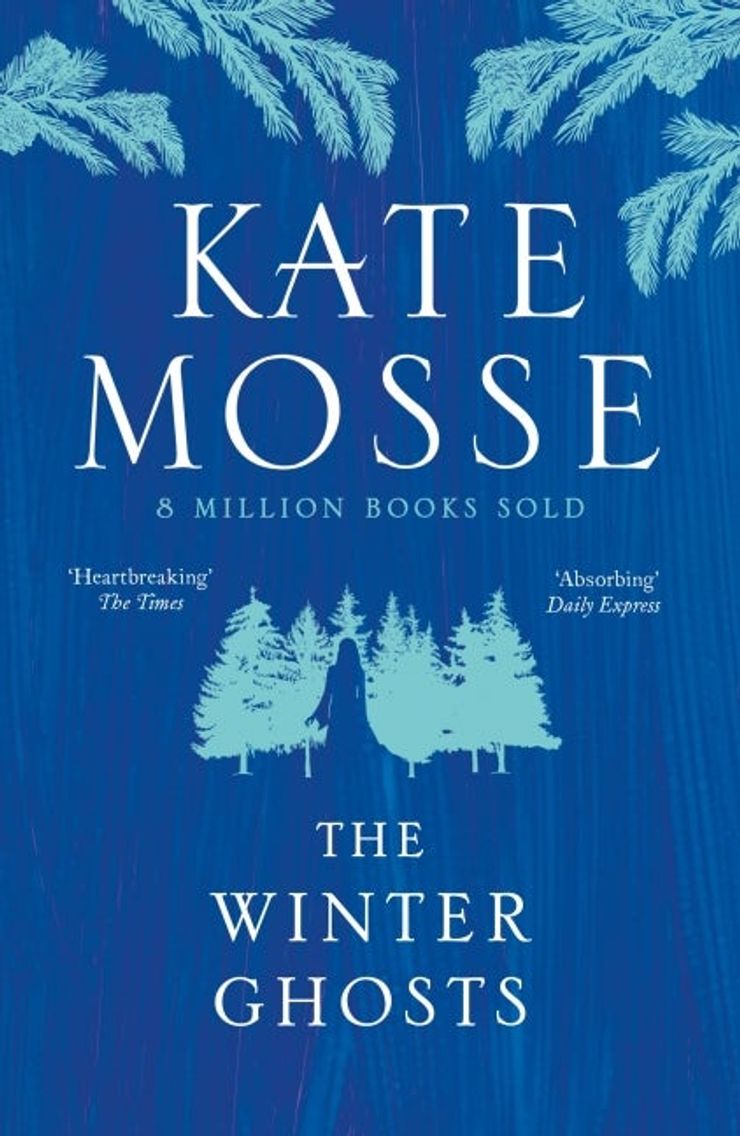
For Freddie Watson, the great war has taken his much-loved brother, and his peace of mind. He spends long tracts of time in a sanatorium recovering, but in 1928 departs on a journey through the French Pyrenees. Freddie's car skids off the mountain road. Staggering into the woods, he comes to a small village, where beautiful Fabrissa is also steeped in loss. They share stories, and uncover a centuries' old mystery over the course of a magical, troubling, haunting night.
An Extra Pair of Hands
by Kate Mosse
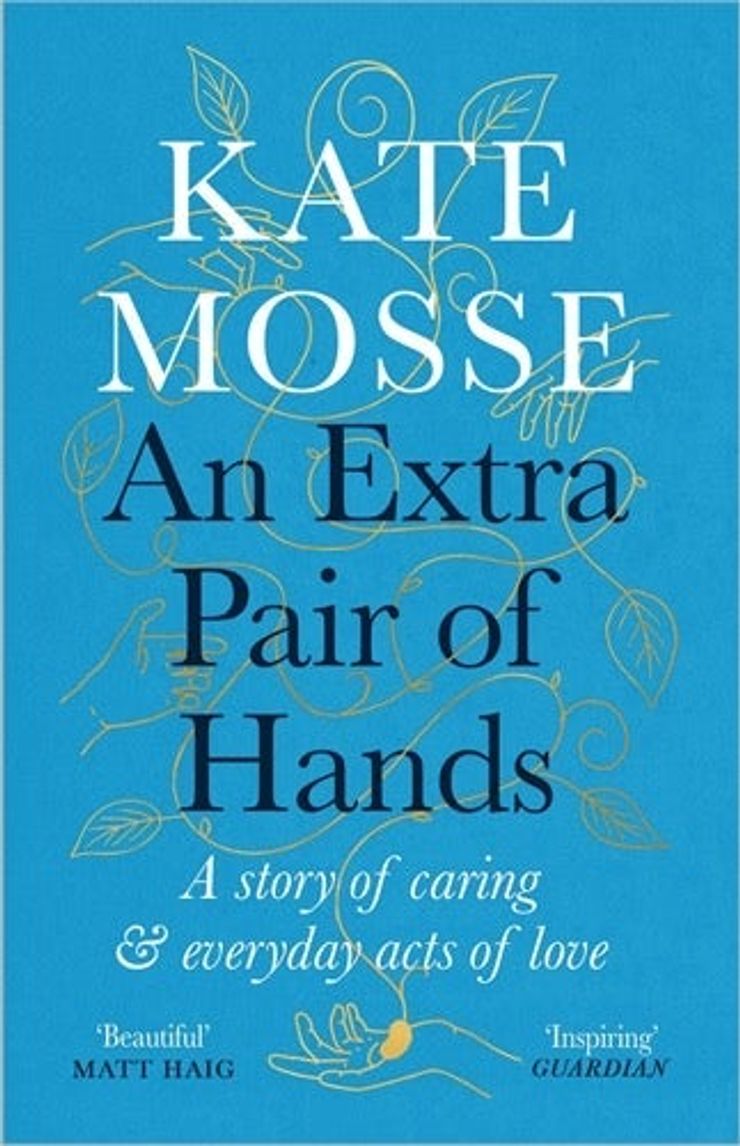
Kate Mosse's much-loved non-fiction book shares the story of what it is like to care for those we love.
In her own life, Kate has cared for her father and mother, and for her 90-year-old mother-in-law, Granny Rosie. Through this, she has experienced the joys, challenges and frustrations shared by an invisible army of carers.
At the heart of providing care, lie everyday acts of love and the realisation that, at some point in our lives, most of us will come to rely on an extra pair of hands.
Meet Kate Mosse
Kate Mosse is loved by her fans for her sweeping historical fiction series The Joubert Family Chronicles, but she is also the author of nine novels and short story collections, including her enthralling gothic novel The Taxidermist’s Daughter, the haunting ghost story The Winter Ghosts and her spooky short story collection The Mistletoe Bride and Other Haunting Tales. Kate bought a little house within the medieval city walls of Carcassonne in 1989, and it was her time in the city where she became inspired by the landscape, the beauty and the history of the region – that helped Kate become the writer she is.



